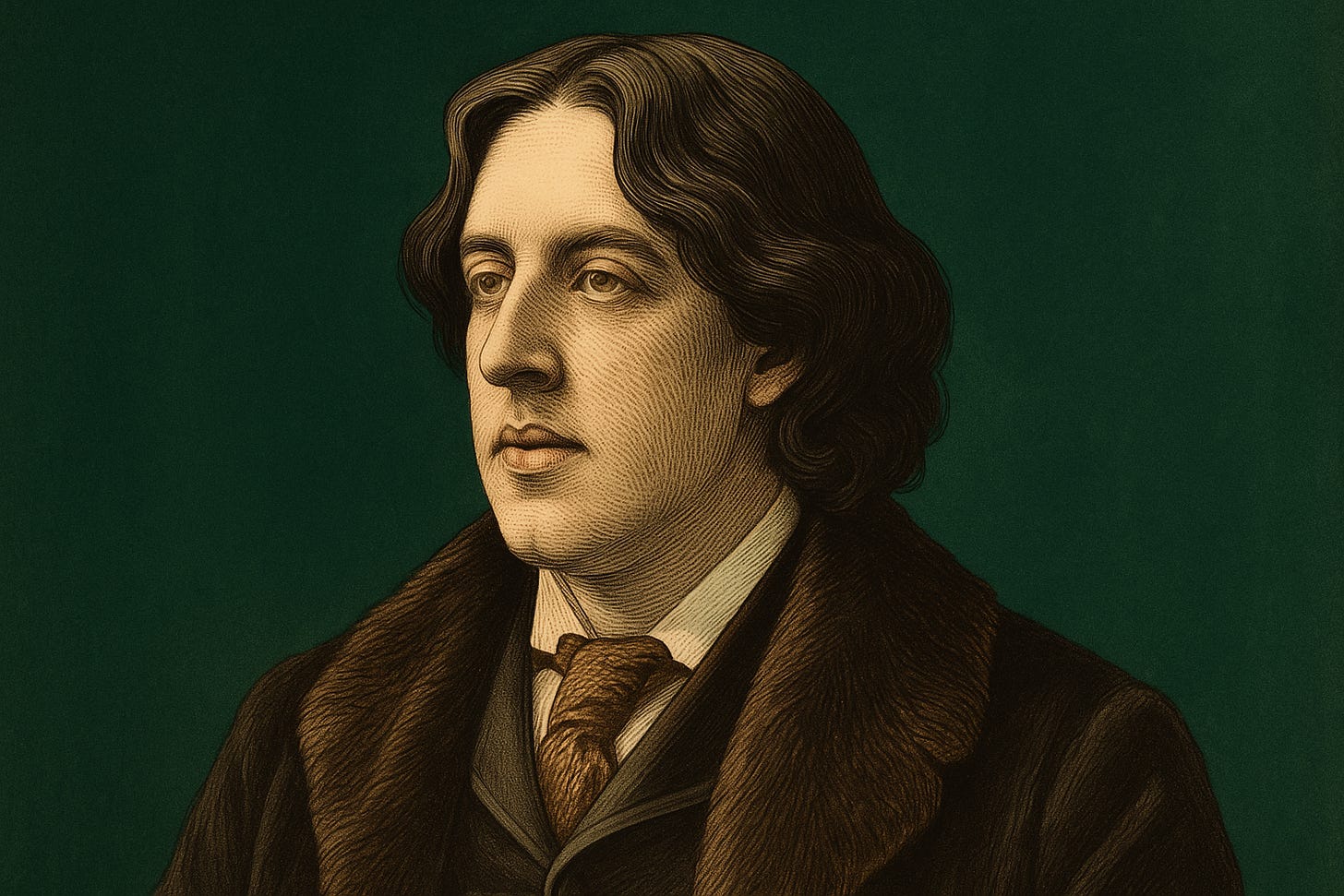Why a Sharp Mind Needs a Light Heart
What Oscar Wilde Can Teach Us About Everyday Wit
Oscar Wilde once said, “Life is far too important to be taken seriously.”
It’s a line that still feels like a wink from the past; a gentle nudge reminding us that brilliance doesn’t have to come with a furrowed brow.
Somewhere along the way, we forgot that intelligence can be playful, that humour can be profound, and that wit is often the highest form of wisdom.
Wilde lived as if conversation were an art form.
His words sparkled with irony, charm, and rebellion and beneath the laughter was a deep understanding of human nature.
His wit was about revealing truths with grace. He showed that to be witty is not to mock life, but to dance with it.
So, how do we bring a touch of Wilde’s sparkle back into our daily lives?
First, by noticing more.
Wit begins with attention to words, gestures, absurdities, and contradictions. It’s the ability to see the poetry in the mundane, the humour in the serious, and the irony in our own behaviour.
Wilde’s sharpness came from observation; he looked at society not with cynicism, but with curiosity. To be witty is to be awake; to see patterns others overlook and turn them into play.
Second, by learning to laugh at ourselves.
Modern life rewards perfection, but wit thrives in imperfection. Self-deprecating humour softens the ego and invites connection. It’s what makes someone magnetic rather than intimidating.
Wilde often made himself the subject of his jokes because he understood that laughter is disarming.
When we can smile at our own contradictions, we become lighter, and paradoxically, wiser.
Third, by embracing conversation as a craft. Wit isn’t just what you say; it’s how you listen. It lives in timing, tone, and empathy. Wilde’s dinner table wasn’t a debate club; it was a theatre. He understood rhythm, space, and the pleasure of a well-placed pause.
Today, between texts and tweets, we’ve lost some of that rhythm. To be witty now might mean slowing down, choosing words that surprise or delight, and giving language its elegance back.
Finally, by staying curious and kind.
Wit without warmth becomes sarcasm; intelligence without joy becomes cynicism. Wilde’s most extraordinary charm was that his wit never punched down. It illuminated, not humiliated.
In a world where humour often divides, true wit still connects.
Maybe what we need isn’t more cleverness, but more lightness.
A reminder that humour can carry wisdom, that laughter can be an act of resistance, and that play is not the opposite of depth; it’s its companion.
So yes, let’s bring Wilde back; not his flamboyance, but his philosophy: that the mind is at its brightest when it’s also smiling.
Thank you for reading. Your time and attention mean everything. This essay is free, but you can always buy me coffee or visit my shop to support my work. For more thoughts and short notes, please find me on Instagram.



